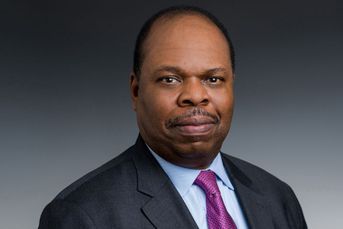Private equity loves IBDs, but will that last?

Three big acquisitions in less than a year signals renewed life in the formerly beleaguered industry.
A few years ago, the independent broker-dealer industry was supposed to be in its death throes.
Margins were in sharp decline. Costs from technology and regulation, in particular the Department of Labor’s dreaded fiduciary rule, were eroding profits.
It got so bad that back in 2016, InvestmentNews reported that the IBD industry had basically hit a wall — year-over-year revenue at the top 25 firms declined. It was the first time the industry had seen growth disappear since the dog days of the credit crisis.
That was a danger sign. According to InvestmentNews data, the IBD industry, on average, was used to seeing 10% revenue growth annually. The message was, 2016 was bad and the industry should brace for worse.
Boy, did we get that one wrong!
Last week’s major acquisition by a private-equity manager of Advisor Group — the third such purchase of a large IBD in less than a year — is a clear indication that the broader financial services market sees IBDs as holding real value for investors.
What’s changed in the past two-and-a-half years to inject new life, and optimism, in the IBD industry?
First, the election of Donald J. Trump as president in 2016 ushered in a pro-business administration that wasted little time in pulling back regulation across various industries, including killing the DOL’s fiduciary rule.
The fidush, as it is known in our newsroom, was hated by the brokerage industry for its expense and putting a big, fat target on the backs of broker-dealers for class-action lawsuits. Last March, the Fifth U.S. Circuit Court of Appeals struck down the rule, and the brokerage industry rejoiced.
Next, rising interest rates increased the value of broker-dealers, who make money on client cash sweep accounts, money market funds and margin lending. Since the end of 2016 through Friday, the effective federal funds rate, or the interest rate banks charge each other for overnight loans, has gone up from 0.66% to 2.38%. The Fed funds rate fell to just about zero during the credit crisis, decimating broker-dealers’ ability to make easy money off client cash.
Add in two more factors that improve the profile of IBDs: Mr. Trump’s huge corporate tax cuts in 2017 have been a boon for corporate profits, and the stock market continues to hit all-time highs, despite its recent pullback. The higher the stock market climbs, the more clients’ assets grow, and the fatter the fees broker-dealers charge clients.
Private-equity managers in particular are enamored with the independent broker-dealer business model, in which advisers are paid not as employees but independent contractors.
As mentioned, three PE managers have invested heavily in large broker-dealer businesses in the past year.
Last summer, Genstar Capital bought a majority stake in Cetera Financial Group, a network of six broker-dealers that house close to 8,000 financial advisers and registered reps. The largest is Cetera Advisor Networks, which generated almost $620 million in revenues last year and was the 11th largest IBD in the nation, according to InvestmentNews rankings. The price tag for the entire network was later revealed to be $1.7 billion.
Then in February, Warburg Pincus agreed to buy a majority stake in Kestra Financial Inc., from another PE manager. Terms of that deal were not disclosed. Kestra is the 13th largest stand-alone IBD, with $549 million in total revenue last year.
That brings us to last week’s deal, with Reverence Capital Partners agreeing to acquire 75% of Advisor Group, from Lightyear Capital, PSP Investments and other investors, at a reported price tag of $2.3 billion. Advisor Group is a network of four broker-dealers; the largest is Royal Alliance Associates Inc., No. 12 in InvestmentNews’ rankings, with close to $604 million in revenue last year.
These are significant transactions that show big investors see plenty of life left in an industry that was left for dead just a couple of years ago.
Insurance companies at one time or another owned these same broker-dealers but got tired of the risk and expense inherent in the retail securities business.
This round of new private-equity investors undoubtedly likes the cash flow and steady revenue broker-dealers charge on client assets.
The test for these private-equity managers will come in the next couple of years when they decide to cash out and sell their businesses. Will new private investors or the public market have the same appetite for these firms?
The value of a brokerage firm can shift dramatically. The obvious lesson here is to watch out for interest rate momentum and shifts in political power in Washington.
Which way will Cetera, Kestra, Advisor Group and the rest of the industry move over the next three years? Is it the top of the market for broker-dealer valuations, or is there still room for more growth in these businesses? Let me know what you think.
Learn more about reprints and licensing for this article.








